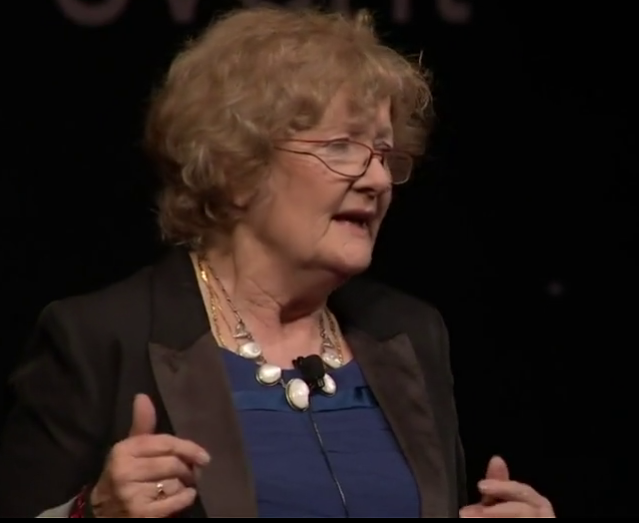But if you're not a native speaker, you have to pass a test.
如果你的母语不是英语的话,你要通过一个考试。
Now can it be right to reject a student on linguistic ability alone?
那么仅仅根据学生的语言能力就拒绝一个学生的做法合适吗?
Perhaps you have a computer scientist who's a genius.
也许你们中一个计算机科学家是一个天才。
Would he need the same language as a lawyer, for example? Well, I don't think so.
那例如,他需要有和律师一样的语言能力吗?我并不这么认为。
We English teachers reject them all the time.
我们做英语老师的总是否定他们。
We put a stop sign, and we stop them in their tracks.
我们放置一个禁止通行的标志,我们在他们的发展轨道上挡住了他们。
They can't pursue their dream any longer, 'til they get English.
他们不能继续追寻他们的梦想,除非他们掌握了英语。

Now let me put it this way: if I met a monolingual Dutch speaker who had the cure for cancer,
现在我这么说吧,如果我遇到一个只会说荷兰语的人,他能治愈癌症,
would I stop him from entering my British University? I don't think so.
我会阻止他进入英国大学吗?我想不可能。
But indeed, that is exactly what we do. We English teachers are the gatekeepers.
但是事实上,我们正是这样做的。我们英语老师是把关的。
And you have to satisfy us first that your English is good enough.
你得先令我们满意,你的英语要足够好。
Now it can be dangerous to give too much power to a narrow segment of society.
这就可能很危险,把很多权力交给了社会的一个窄小的团体。
Maybe the barrier would be too universal. Okay.
可能这个造成的障碍影响面就太广了。好吧。
"But," I hear you say, "what about the research? It's all in English."
“但是”,我听见你们说,“那科研呢?它们都是用的英语。”
So the books are in English, the journals are done in English, but that is a self-fulfilling prophecy.
书是英语的,研究刊物是英语的,但是这是一个自我实现的假定。
It feeds the English requirement. And so it goes on.
它正好符合需要英语的条件。于是它就继续这样发展下去。












